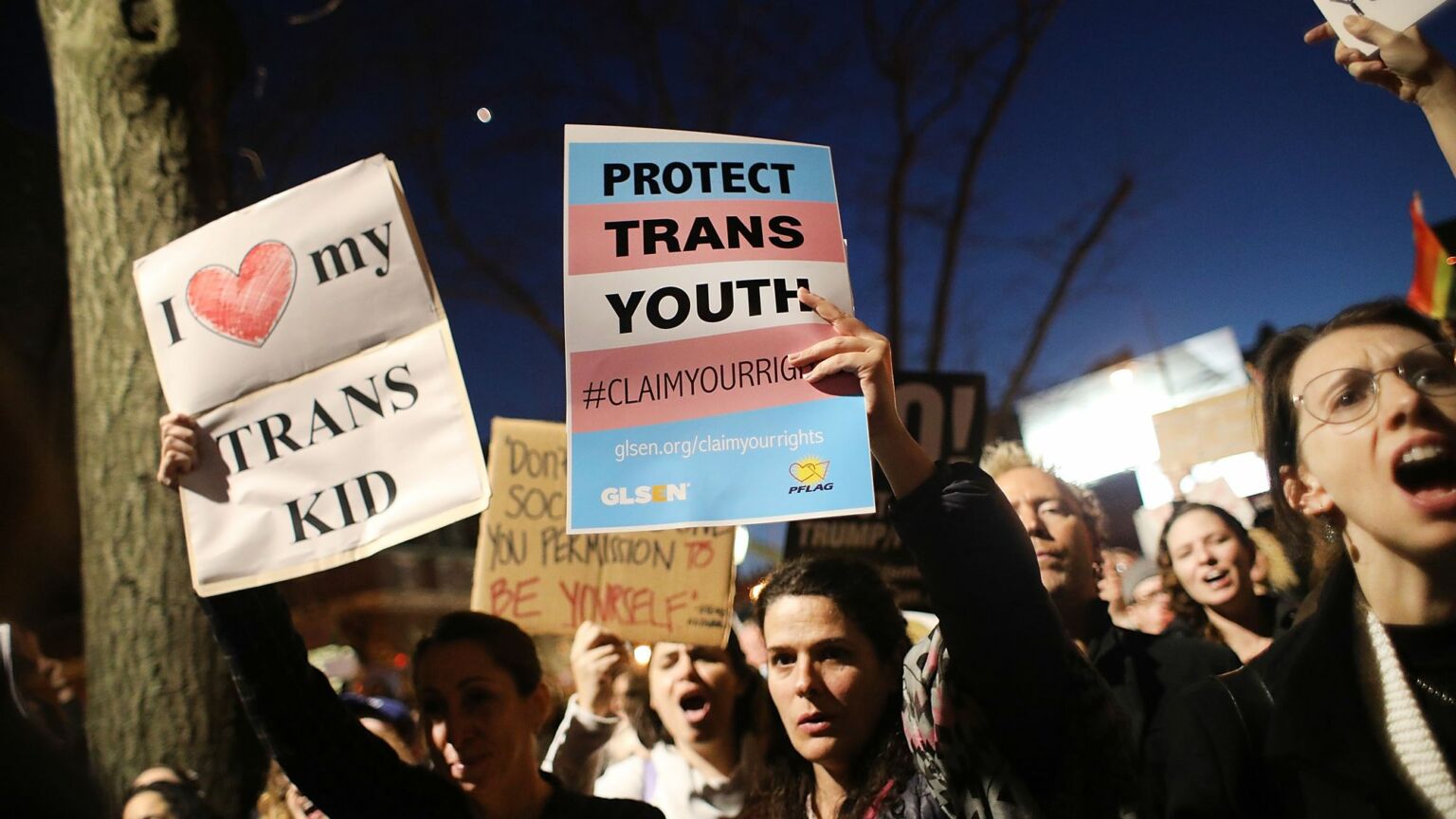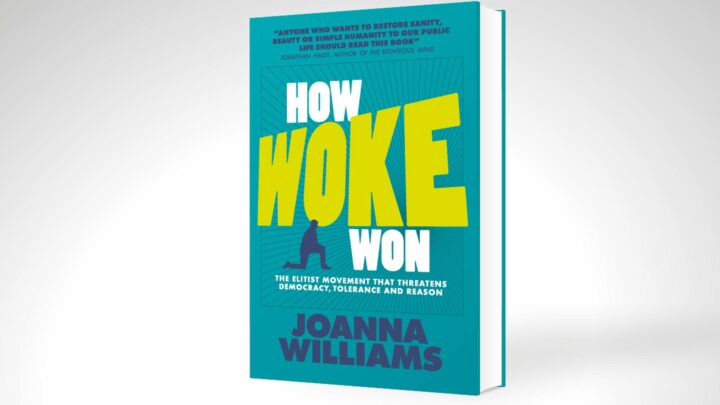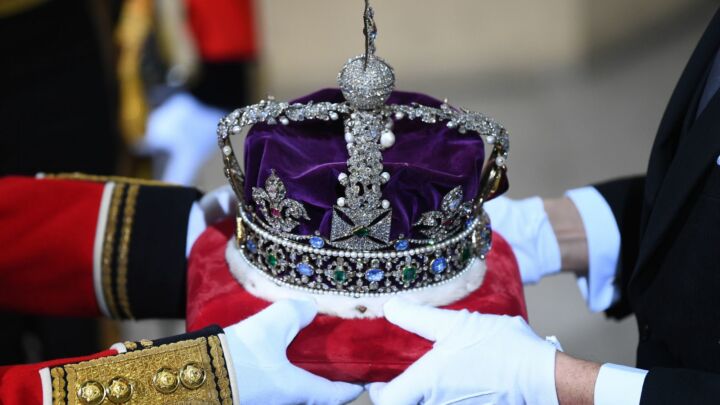Trans ideology is a threat to children
New guidance calls for minors to have access to sex-reassignment surgery. This is unbelievably reckless.
By James Esses September 21, 2022
Earlier this month, the World Professional Association for Transgender Health (WPATH) published the latest edition of its guidance for policymakers and clinical practitioners, titled ‘Standards of Care for the Health of Transgender and Gender Diverse People’. These new guidelines are deeply concerning and could pose a serious risk to child safeguarding.
WPATH was founded in 1979. Its stated purpose is to ‘promote evidence-based care, education, research, advocacy, public policy and respect in transgender health’. The guidelines it produces have been used to inform policy and clinical practice around the world. But many argue that WPATH effectively acts as a partisan lobby group for the trans movement, rather than a disinterested body. Many of its senior members themselves identify as trans or nonbinary, or are known to be trans-rights activists.
The most concerning aspect of the new guidelines is that they remove any reference to minimum-age limits for children to be able to access puberty blockers, cross-sex hormones and sex-reassignment surgery. So long as a child has reached ‘Tanner Stage 2’ of puberty, which can be as young as nine years old, the WPATH guidelines suggest these invasive and irreversible gender-reassignment processes could be appropriate. Worryingly, minimum-age recommendations had been included in an earlier version of the guidance that appeared online, before it was abruptly removed via a ‘correction’.
The guidelines state that double mastectomies – that is, the removal of a girl’s breasts – ‘can be considered in minors’. Similarly, ‘vaginoplasty’, or the construction of a false vagina, may be considered for boys under 18 under WPATH guidelines.
Healthcare professionals are also instructed to provide education to children on how to bind their breasts or tuck their genitals, on the basis that these practices will provide ‘comfort’ and will ‘lower rates of misgendering’. This is despite the fact that breast-binding can cause pain, infection and even fractures in girls, while genital tucking can cause lower sperm count in boys. Hormone treatment is also recommended to children, even though, as the guidelines acknowledge, it can cause ‘infertility’.
The guidelines feature language that is grounded in trans ideology, rather than medicine or biology, throughout. For example, irreversible medical and surgical interventions are referred to as ‘gender-affirming healthcare’. Double mastectomies are called ‘chest-masculinisation surgery’. The guidance also uses ideological terms such as ‘cisgender’ (meaning anyone who does not identify as trans). And it features the scientifically and factually inaccurate term ‘sex assigned at birth’ (when, in truth, biological sex is observed at birth).
The guidelines also sideline the role of parents in their children’s upbringing. If parents are ‘unsupportive’ of their child medically transitioning, healthcare professionals are encouraged to give them ‘psychoeducation’. Medics are also told they should not worry about prescribing hormone treatment for children without parental involvement, if such involvement would be ‘unnecessary’.
WPATH’s guidelines unwittingly reveal the consumerist nature of trans ideology. They provide what appears to be a shopping list of surgeries that are recommended for children and adults with ‘trans’ identities. These include body contouring, voice surgery, jaw augmentation, liposuction, brow lifts, lip shortening, calf implants, mastectomies, phalloplasties and hysterectomies.
Meanwhile, principles of mental-health safeguarding appear to have been abandoned entirely. The guidelines explicitly state that therapy or counselling should not be ‘mandatory’ for patients before they are prescribed irreversible medication or surgery. And this goes for children, too.
Therapeutic professionals are told that they must not impose their own preconceptions on patients who identify as trans. Yet, at the same time, the guidance insists that practitioners must be ‘gender affirming’. These stances are entirely contradictory. They essentially tell therapists that they should make no effort to understand or explore their patients’ struggles with gender.
Some of the updated guidance is downright bizarre. It even includes a new chapter dedicated to ‘eunuchs’. Eunuchs are described as people who were ‘assigned male at birth and wish to eliminate [their] masculine physical features… or genitals’. The guidelines appear to support individuals who seek ‘castration’, including when this desire is based on a sexual fetish, as such people are said to fall under the ‘gender-diverse umbrella’.
From an ethical and therapeutic standpoint, all of this is deeply concerning. As the WPATH guidelines are forced to acknowledge, the evidence base for these interventions is poor. The guidance says ‘there are few outcome studies that follow youth into adulthood’. And despite the increasing visibility in the media of people seeking to ‘detransition’, there are apparently ‘no clinical cohort studies [that] have reported on profiles of adolescents who regret their initial decision’. In other words, there is no evidence that the drastic medical interventions recommended by WPATH will do more good than harm to young people in the long-run.
The ramifications of the new guidance could be considerable. For example, the NHS refers to past WPATH ‘Standards of Care’ guidelines in a variety of medical documents. And the Scottish government has acknowledged using past versions of it when drawing up policy.
Previous WPATH guidelines have also been used by numerous private health clinics in the UK. This includes the now disgraced Gender GP. One Gender GP co-founder was recently expelled from the medical profession. The other, who was recently found by a medical tribunal to have put patients at ‘unwarranted risk of harm’, has tweeted in praise of the new WPATH guidelines.
The new WPATH guidelines need to be resisted. We need to hear assurances from the government and NHS leaders that the new recommendations will not influence how we treat gender dysphoria in the UK, particularly when it comes to vulnerable children. We cannot allow trans ideology to take over medicine. The stakes for children are simply too high.
Source: spiked




No comments:
Post a Comment